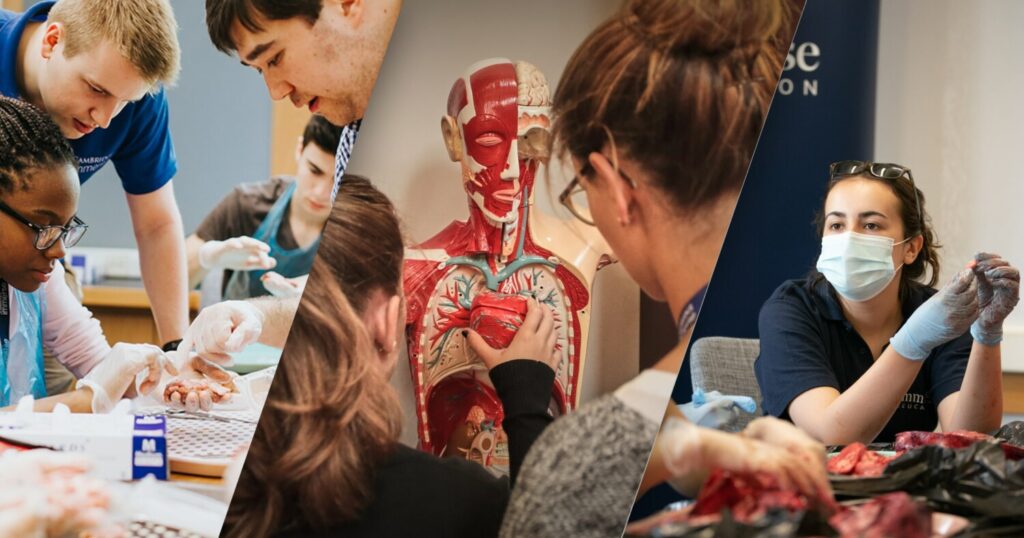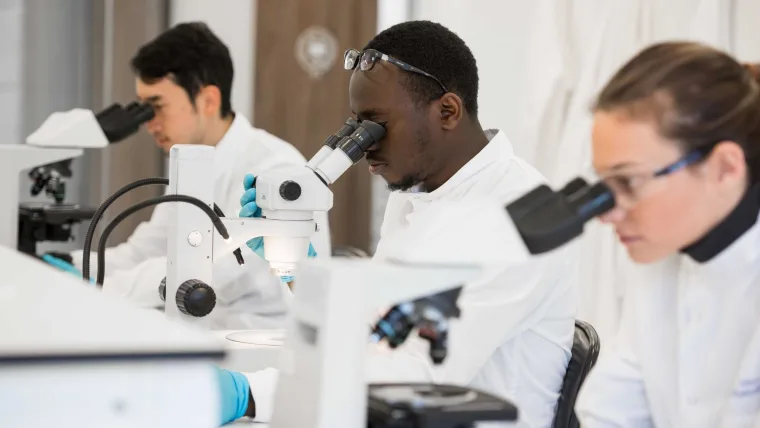In the UK, the traditional route to becoming a doctor involves obtaining a Bachelor of Medicine, Bachelor of Surgery (MBBS) degree. However, the title “MD” (Doctor of Medicine) is sometimes used interchangeably with “MBBS” in certain countries, particularly in North America.
If you’re asking whether you can obtain an MD degree without completing an MBBS degree in the UK, it depends on the specific context and the institution. Some universities may offer graduate-entry programs where individuals with a bachelor’s degree in another field can pursue a Doctor of Medicine degree, but typically, these programs still entail extensive medical training equivalent to that of an MBBS program.
Sure!
How long is an MBBS program in the UK?

The duration of the MBBS program in the UK typically ranges from 5 to 6 years. During this time, students undergo extensive theoretical and practical training to develop their medical knowledge and skills.
At Imperial College London, for instance, the undergraduate MBBS/BSc in Medicine spans 6 years of full-time study, starting in October. Students benefit from extensive clinical experience at partner NHS Trusts and have direct contact with patients from their very first term.
The program emphasizes both traditional and innovative teaching with a strong scientific emphasis throughout, preparing students to apply evidence-based medicine wherever they practice.
Additionally, some universities offer an integrated MBBS program that combines undergraduate and postgraduate degrees into a single course, resulting in a longer duration.
If you’re considering pursuing an MBBS in the UK, it’s essential to explore specific university programs and their unique features.
What is the difference between an MD and an MBBS degree in the UK?
In the United Kingdom, the MBBS (Bachelor of Medicine, Bachelor of Surgery) and the MD (Doctor of Medicine) represent distinct stages in a medical career. Let’s delve into the details:
MBBS (Bachelor of Medicine, Bachelor of Surgery)
The MBBS is an undergraduate degree that commonwealth students pursue to become doctors. It typically spans five to six years and starts after completing secondary education.
Students who aspire to study medicine and practice as physicians embark on this pathway. Unlike the US, where students earn a bachelor’s degree before pursuing medicine, the MBBS directly focuses on medical education.
Upon completing the MBBS, students are certified as junior physicians but lack specialized training. Graduates proceed to the Foundation Programme in the UK, which involves additional training.
The Foundation Programme allows students to explore different specialties before choosing one for further training.
Specialty training can last anywhere from three to eight years.
MD (Doctor of Medicine)
The MD is a postgraduate qualification, specifically a doctoral research degree. Students pursue the MD after obtaining their MBBS qualification and completing at least F1 training.
Unlike the MBBS, which focuses on clinical practice, the MD emphasizes research and advanced medical knowledge. It is a pathway for doctors who wish to engage in academic medicine, contribute to medical research, or specialize further.
The MD is not a common route for all doctors; it caters to those with a specific interest in research and academia.
How can I pursue an MD without an MBBS in the UK?

If you’re interested in pursuing an MD in the UK without an MBBS, there are options available. Here are a couple of pathways you might consider:
Clinical MD (Clinical MPhil) in General Internal Medicine
This program is designed for overseas, early-career medical practitioners who wish to undertake substantial individual research and develop clinical skills related to general internal medicine.
The duration of the program is 2 years, and it provides you with the recognition required to become a specialist in general internal medicine in your home country.
Notably, you won’t need to go through the PLAB 1 and PLAB 2 exam route for GMC registration. Instead, you can directly register with the General Medical Council (GMC) with sponsorship.
To be eligible, you should have completed undergraduate training from an internationally recognized medical school, be fully registered with the medical council of your respective country, and have completed one year of internship.
Additionally, you’ll need an academic IELTS score of 7.5 (with a minimum of 7 in each section) and two character reference letters from your medical school or current consultants.
Successful applicants will be invited to an online video conferencing interview. If you meet the GMC eligibility requirements (including evidence of medical practice for three out of the last five years and knowledge of English), you can apply for full registration with a license to practice in the UK.
Other Programs
Some universities and institutions offer specialized MD programs in various medical fields. These may have different entry requirements and pathways.
It’s essential to research specific universities and their programs to find the best fit for your career goals.
Final Words
We talked about how to become a doctor in the UK. One way is by studying for an MBBS degree, which takes a few years. Another way is by getting an MD degree, which might be possible if you don’t have a medical background.
It’s important to learn about both options and talk to teachers for advice. Either way, both paths can lead to exciting jobs helping people as a doctor.
